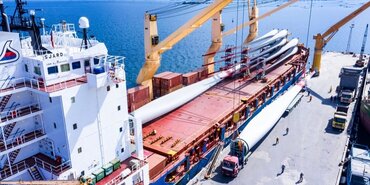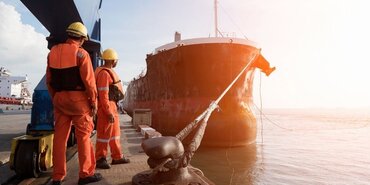TT Talk - Ignorance and confusion is no excuse

The linked UK P&I Club loss prevention bulletin identifies concerns about the packing and securing of shipments of sulphur (UN1350 Class 4.1 flammable solid) carried by rail to St Petersburg and thereafter by feedership to Hamburg and Rotterdam. The bulletin clearly demonstrates the shortcomings of packaging and securing in this instance.
The international standards relating to the transport of dangerous goods by any mode are derived from the recommendations of the UN Committee of Experts, contained in the UN Recommendations on the Transport of Dangerous Goods (UNRTDG), known as the 'orange book'. This forms the basis of a series of codes covering the classification, packaging and labelling of dangerous goods for transport by road, rail, inland waterway, sea and air. Historically, there were differences in applying the 'orange book' between modes and, perhaps more significantly between national and international carriage. Within the European Union, countries are committed to the harmonisation of national and international regulations, as far as possible. Greater consistency between modes has also been achieved.
While clearly shippers, packers, freight forwarders and every type of carrier need to comply with any national regulation relating to shipment and handling of dangerous goods, the inherent hierarchy place the rules relating to international carriage by air and sea at the head - the respective UN agencies set out the detailed requirements in the International Maritime Dangerous Goods (IMDG) Code and the Technical Instructions issued by the International Civil Aviation Organisation (ICAO), dealing with the carriage of dangerous goods by sea and air respectively. While the details are necessarily different between these modes, the principles are the same. These documents are updated on a bi-annual basis and the current versions came into mandatory effect on 1 January 2012. Airlines generally work to IATA dangerous goods regulations, which are based on the ICAO Technical Instructions.
In Europe, European Agreement Concerning the International Carriage of Dangerous Goods by Road (ADR) - drawn up by the United Nations Economic Commission for Europe (UNECE) - and the Regulations Concerning the International Carriage of Dangerous Goods by Rail Carriage of Dangerous Goods by Rail (RID) - published by the Central Office for International Carriage by Rail (OTIF) - are incorporated into national legislation, thereby applying them to national as well as international carriage. ADR allows dangerous goods travelling by road through more than one country to be exempt from the national legislation in force in those countries, as long as the requirements of ADR are met in full.
There are inevitably a number of technicalities in the enforcement of the road, rail and inland waterway regimes nationally, which are beyond the scope of this article. The key issue for all parties to consider is the totality of the anticipated transport to ensure that the relevant international regulations are followed completely. Thus, even if national regulation allowed the type of packing and securing shown in the UK P&I Club bulletin (and that is probably not the case), those involved in shipping and packing the cargo absolutely had to take account of the IMDG Code since the shipment was due to be carried by sea to Qingdao, China.
Be aware of consequences
The consequences of such errors are not insubstantial. Apart from the inevitable trade and relational disruption between the parties involved, significant costs have resulted from the refusal to ship the cargo, including storage and return freight, together with cessation of future business. The shipper has a fundamental responsibility to classify cargo correctly and ensure that it is adequately packed and labelled; any intermediary assumes a responsibility to ensure that this has been done effectively in order to maintain safety through the supply chain. The fact it may 'always have been done this way' without incident is insufficient to comply with the regulations and does nothing to restore severed relationships.
- Author
- Staff Author
- Date
- 05/07/2012





